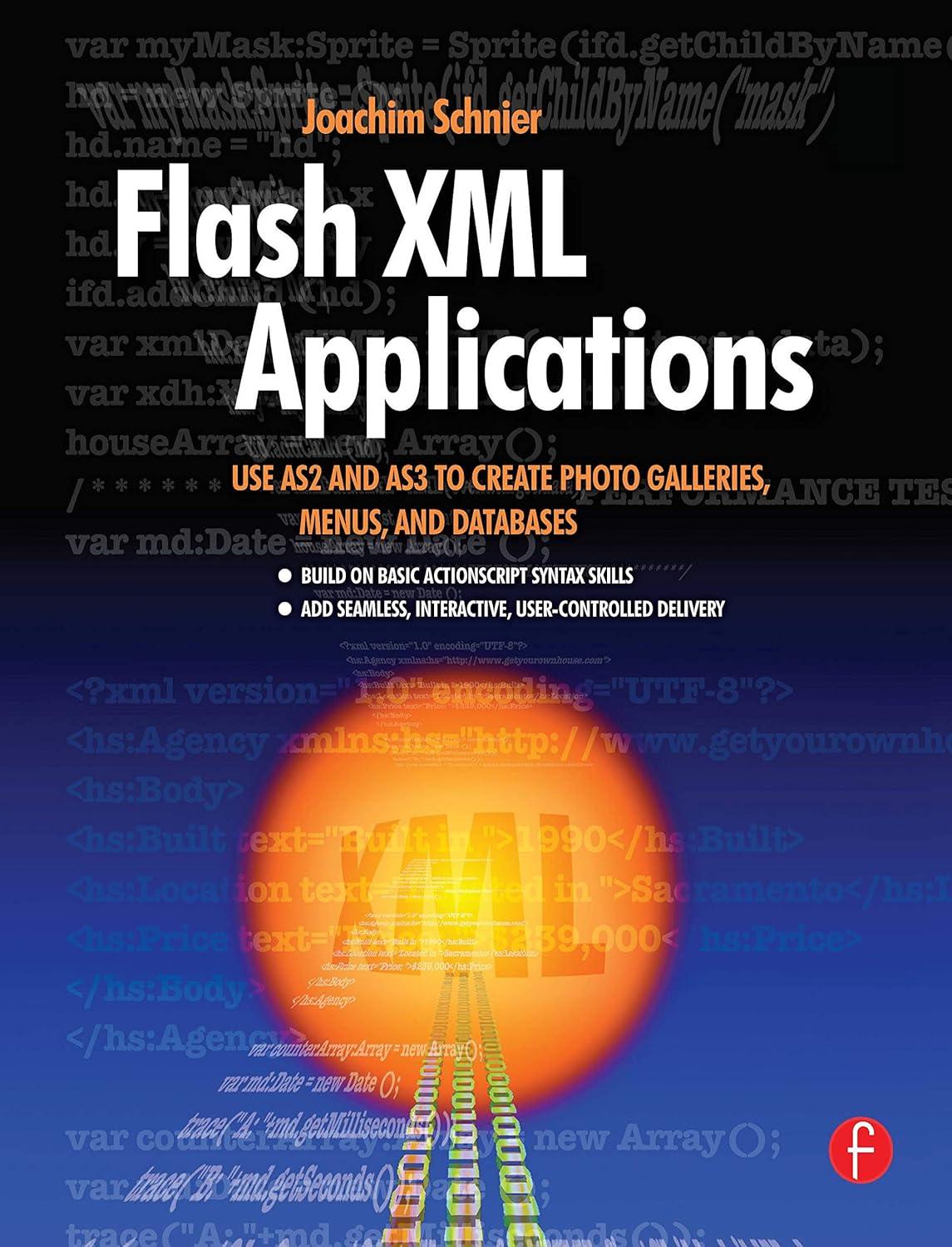Question
For C++ Programming Note: * No linear programming (No function prototypes) * Main should start the engine and thats all * Notice that the requirements
For C++ Programming
Note:
* No linear programming (No function prototypes)
* Main should start the engine and thats all
* Notice that the requirements are minimal requirements.
Thanks in advance!
Summary:
You have been contracted by a small-town bank that would like for you to implement a custom software system for managing bank accounts and transactions. As a prototype you decided to show them a menu driven example. Your menu driven example has the following menu:
Bank Login Menu -------------------------
1) Log into an account 2) Open a new account 3) Remove an account 4) Show all accounts 5) Exit System
After a user has successfully logged in, then following menu should show:
Bank Menu ------------------------------------ 1) Show account balance 2) Make a deposit 3) Make a withdrawal 4) Write a Check 5) Show all transactions 6) Logout of an account
If the user logs out of the system, then the login menu should be shown again. Your software is designed using at least three classes: Account, Transaction, Deposit(inherits from Transaction), Withdrawal(inherits from Transaction), and Check(inherits from Transaction). The Account class represents a single bank account and keeps track of at least this data: First and Last Name of the account holder Account number (9 digits, starting with the number 1) Account password Account balance Number of Transactions A list of all transactions The Account class has at least the following responsibilities: Process withdrawals, checks, and deposits Manage all account data Validate login password Access to a single transaction by transaction number Enable proper access to data The Transaction class represents a single transactions and keeps track of at least this data: Transaction ID Transaction Amount The Transaction class has at least the following responsibilities: Manage all data for a transaction Enable proper access to data Remember that the transactions for checks, deposits, and withdrawals inherit from the transaction class. You must decide whether you want this to be a base class or abstract base class. Your bank account program will be based on performing the activities of the menu. You will use an external file to keep track of the bank account numbers and their passwords. This way bank accounts can be created and then logged into later. In addition, no menu operations should work unless an account has been logged into and is validated. This file should be called allaccounts.txt and is formatted as follows:
Each line of the file contains one bank customer with the above information. This information must be saved between uses of the program. The file should be read into into an array of objects when the program starts, and when the program is being exited (option D) the program should then write the data from the array of objects back to the file. This will overwrite the file entirely. Do not have a program that is always updating and reading the file with every change. Changes that occur during the program execution should only be effected in the array of objects. You should not be using the random access file techniques.
Transactions are maintained on a session-by-session basis. This means that once you log in, each transaction you perform is tracked for that session. So if you were to make a deposit, write two checks, and make a withdrawal then you should use show transactions to show you those four transactions. However, once you log out the transactions are removed. Logging out of an account should not exit the program. It only means that a successful login to some account must be made before more transactions can occur.
Step by Step Solution
There are 3 Steps involved in it
Step: 1

Get Instant Access to Expert-Tailored Solutions
See step-by-step solutions with expert insights and AI powered tools for academic success
Step: 2

Step: 3

Ace Your Homework with AI
Get the answers you need in no time with our AI-driven, step-by-step assistance
Get Started


